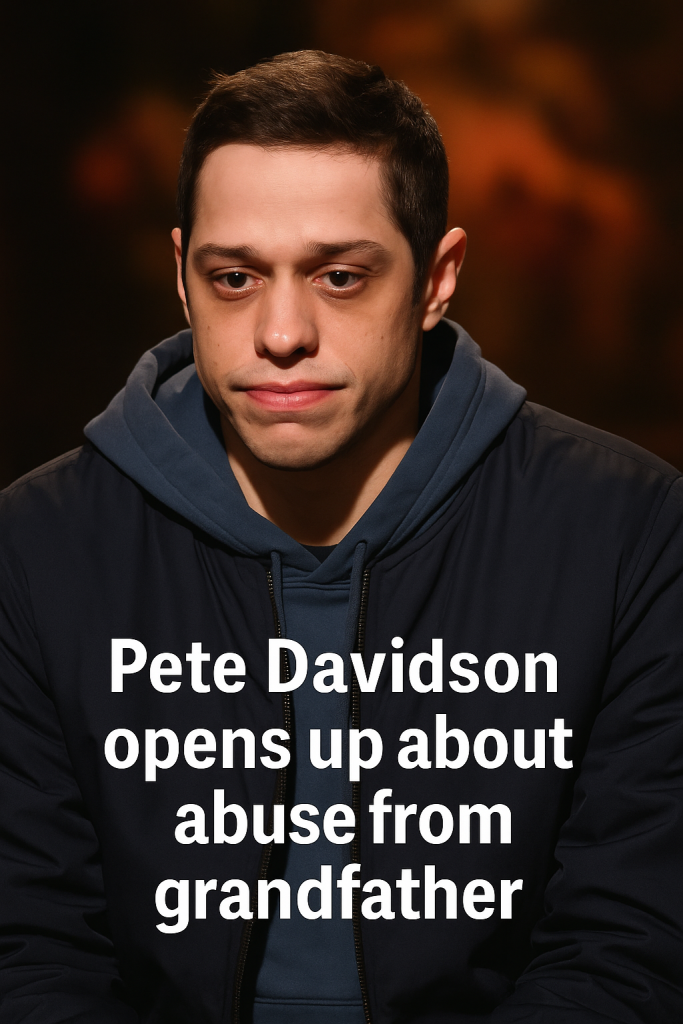In a candid and emotionally charged revelation, comedian and actor Pete Davidson has opened up about the painful abuse he endured at the hands of his grandfather—an admission that has stunned fans and ignited widespread conversations about trauma and healing.
During a recent and deeply personal interview, Davidson did not shy away from describing the lasting damage his grandfather’s behavior inflicted upon him during his formative years. More strikingly, he expressed a controversial and raw sentiment: he is “thrilled” to see his grandfather dying, even wishing he would “die slow.” This blunt honesty has taken social media by storm, prompting both support and shock.
The Roots of Pain
Davidson’s account reveals years of emotional and possibly physical abuse that contributed to his struggles with mental health, including his well-documented battles with anxiety and depression. While he has previously spoken about various hardships, this is one of the most direct discussions about his family trauma.
“It’s hard to explain the kind of pain someone causes you when they’re supposed to be family,” Davidson said during the interview. He painted a picture of a toxic relationship that left long-lasting scars, contributing to his challenges as a young man trying to find stability in the public eye.
“I want him to die slow,” Davidson stated, a raw outburst reflecting the complex mix of anger, betrayal, and unresolved trauma that continues to affect him.
Public Response and Context
The public’s reaction has been mixed, with many expressing empathy toward Davidson’s pain and applauding his bravery in speaking out about abuse, especially given the stigma that often surrounds family violence. Others have grappled with the harshness of his words, attempting to understand the depth of his suffering that could evoke such strong feelings.
This revelation also opens up broader discussions about how abuse within families can often remain hidden, creating silent wounds that can influence personal and professional lives for years. Davidson’s transparency is seen by many mental health advocates as a call for greater awareness and support for individuals undergoing similar struggles.
Davidson’s Journey to Healing
Despite the bitterness expressed, Davidson’s story is also one of resilience. Over the years, he has been vocal about seeking therapy and using comedy as a coping mechanism to process pain and connect with others. His willingness to bring these issues into public discourse helps dismantle the taboo surrounding abuse and mental health.
He also recognizes the complicated nature of family dynamics, acknowledging that not all stories have clear resolutions. While the anger remains, Davidson appears committed to focusing on his well-being and creative pursuits.
Final Thoughts
Pete Davidson’s shocking admission about his grandfather sheds light on the hidden layers behind public personas and serves as a poignant reminder of the personal battles many face behind closed doors. His story is today sparking important conversations about abuse, accountability, and the path toward healing.
As this heartfelt disclosure continues to dominate social media and news cycles, many hope that Davidson’s courage will encourage others to speak out and find the support they need to overcome their own painful histories.



